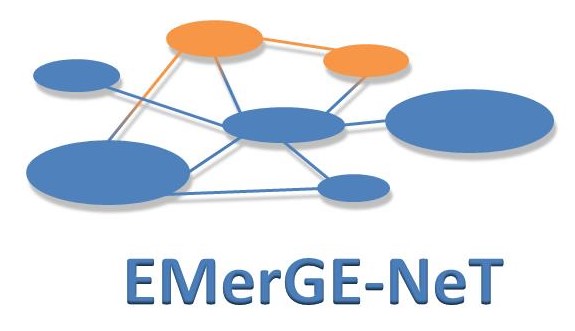Effectiveness of infection control strategies against intra- and inter-hospital transmission of MultidruG-resistant Enterobacteriaceae – insights from a multi-level mathematical NeTwork model
Interventions
Transmission
- Rafael Mikolajcyk, Helmholtz Centre for Infection Research, Germany (Coordinator)
- Petra Gastmeier/Axel Kola, Charité University Medicine, Germany (Partner)
- Aleksander Deptula, Nicolaus Copernicus University, Poland (Partner)
- Mirjam Kretzschmar, University Medical Centre Utrecht, Netherlands (Partner)
- Leonard Leibovici; Dafna Yahav, Beilinson Hospital, Israel (Partner)
- Eduardo López Cortés, Hospital Universitario Virgen Macarena, Spain (Observer)
- Monika Piotrowska, University of Warsaw, Poland (Partner)
- Suanne Haeussler, Helmholtz Centre for Infection Research, Germany (Partner)
Multidrug-resistant Enterobacteriaceae (MDR-E) is a major public health threat in many European countries. While traditional infection control strategies primarily target the containment of intra-hospital transmission, growing evidence highlights the importance of inter-hospital patient traffic for the spread of MDR-E within healthcare systems. Going substantially beyond previous research, the EMerGE-NeT consortium united expertise in theoretical modelling, numerical simulation studies, epidemiology, clinical medicine, and microbiology in order to develop a generic network modelling platform, which combined inter- and intra-hospital transmission of MDR-E in a single framework. Three interconnected work packages (WP1-3) supplemented by a management and dissemination package (WP4) belonged to the project. WP1: multiple network models that reflect patient traffic within and between hospitals were designed. These models showed that there is a strong connection between hospital and community prevalence of MDR-Es and that ICUs play a tremendous role regarding the risk of infection and transmission within a hospital. WP2: specific molecular studies were conducted, using a novel cutting-edge methodology of genetic sequencing. The German study found that only a small proportion of MDR-E is caused by in-hospital transmission. WP3: Based on a systematic literature review, only ASPs could be identified as a promising strategy for the prevention of colonization with MDR-E. Impact: The project helped to analyse (cost-)effectiveness of different intervention strategies within hospitals. These findings can also be applied and expanded to the current COVID-19 pandemic. Through publication of various manuscripts in international peer-reviewed journals, these findings were disseminated to the respective audience worldwide. Apart from that, the development of practical recommendations, about how these strategies can be used, is still planned. Thus, the findings will be discussed with both the German health insurance companies and the hygiene/infectiology experts of the respective clinics. As the health insurance companies are important decision-makers in the German health system, the final practical recommendations will be applicable on a national level in Germany.
- PLoS Comput Biol, 2021. Effects of incomplete inter-hospital network data on the assessment of transmission dynamics of hospital-acquired infections
- PLoS Comput Biol, 2021. Relevance of intra-hospital patient movements for the spread of healthcare-associated infections within hospitals - a mathematical modeling study
- PLoS Comput Biol, 2021. Modelling pathogen spread in a healthcare network: Indirect patient movements
- Epidemics, 2020. Impact of inter-hospital transfers on the prevalence of resistant pathogens in a hospital–community system
- MATHEMATICA APPLICANDA, 2019. Analysis of the AOK Plus data and derived hospital network
- J Infect, 2021. Interventions to reduce infections caused by multidrug resistant Enterobacteriaceae (MDR-E): A systematic review and meta-analysis

